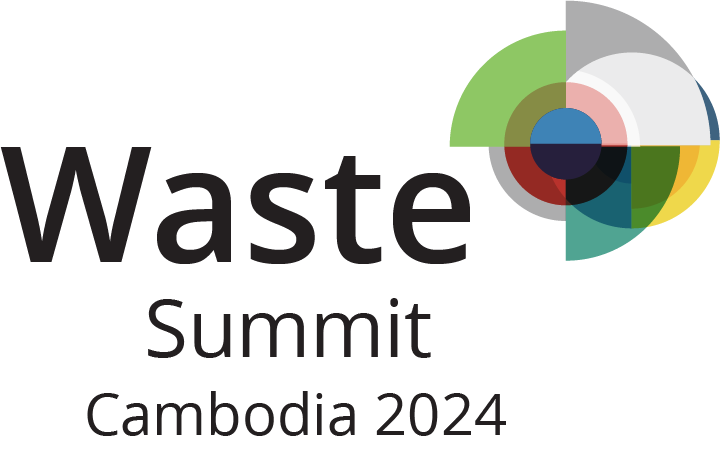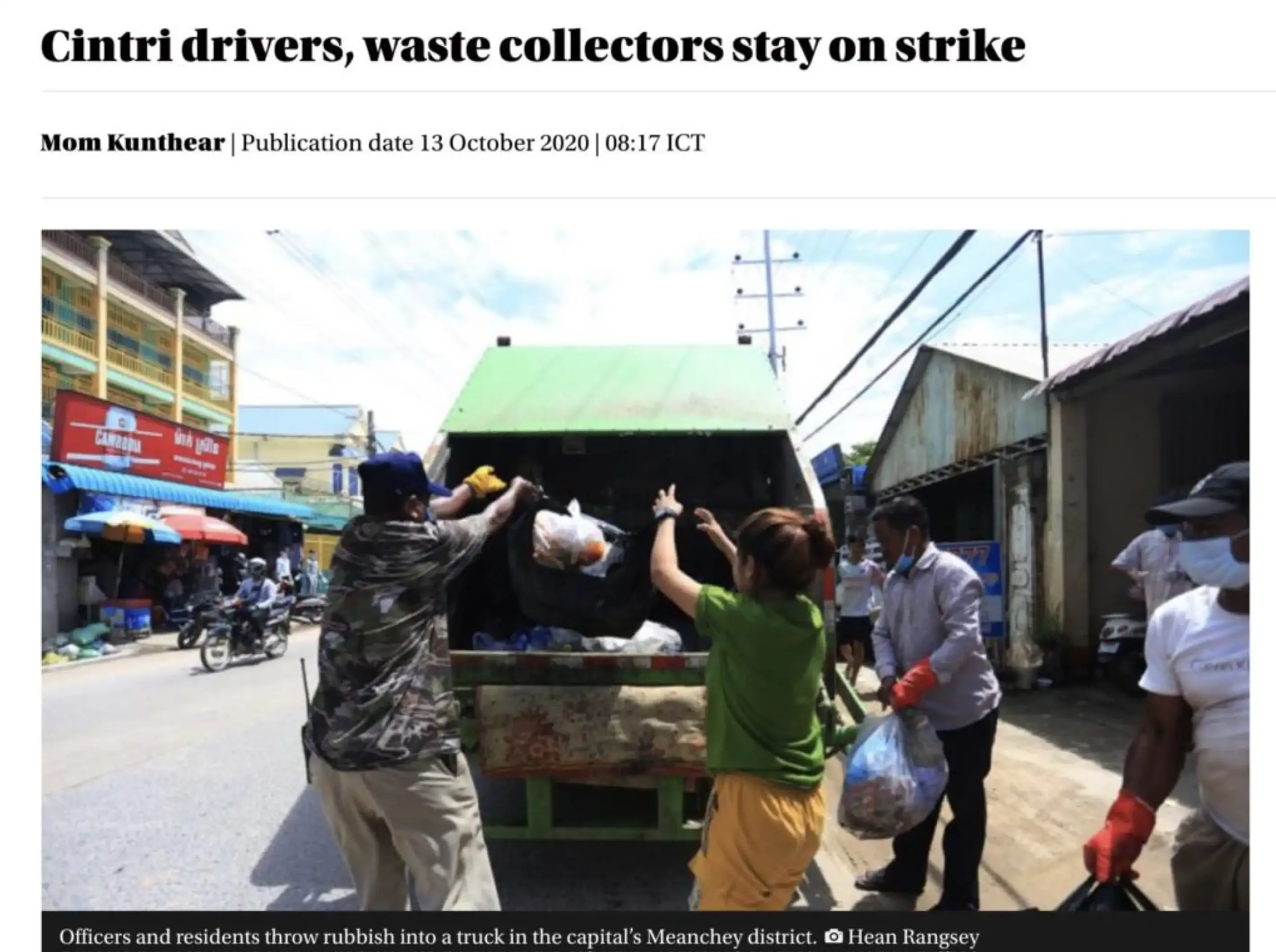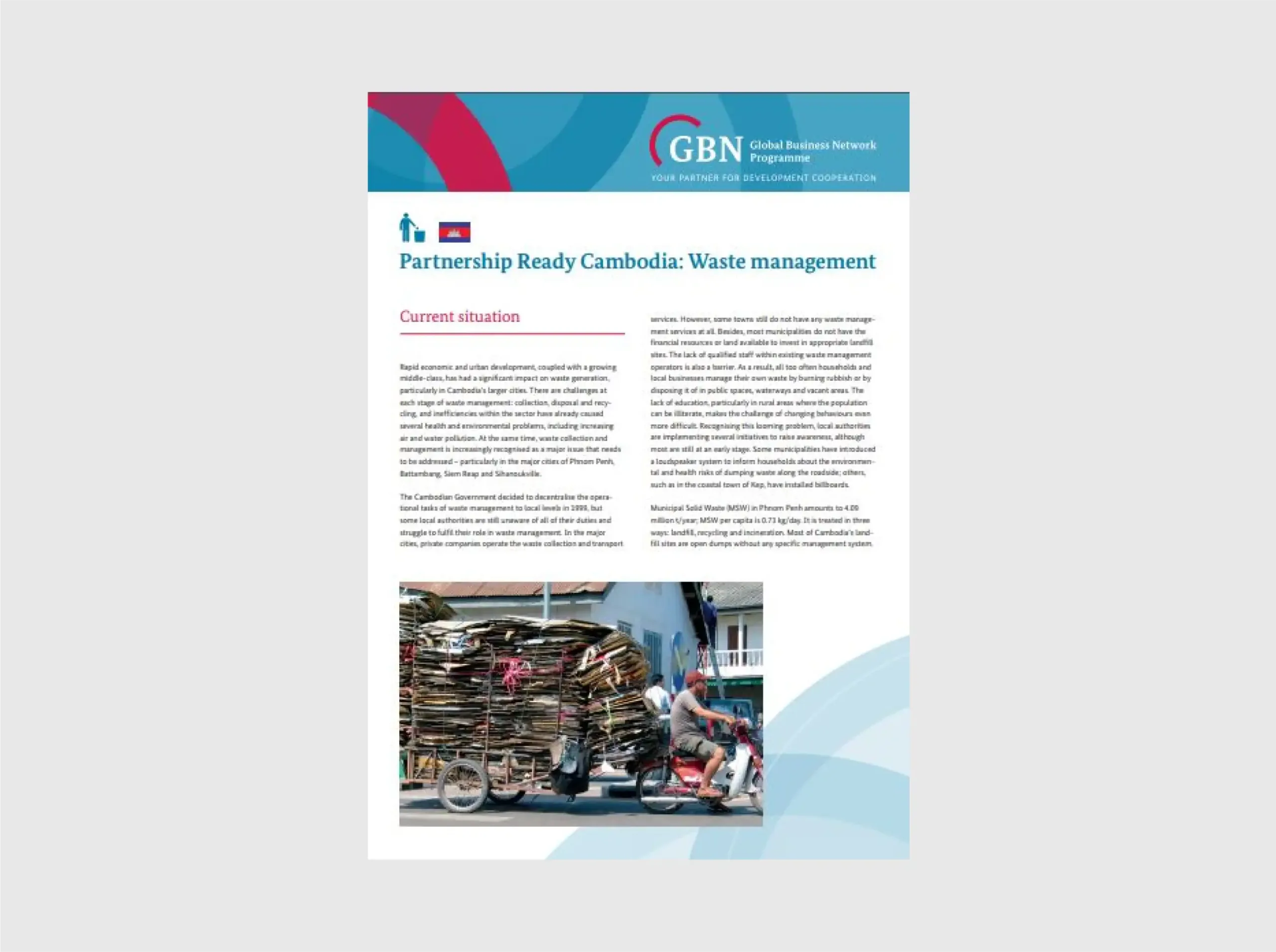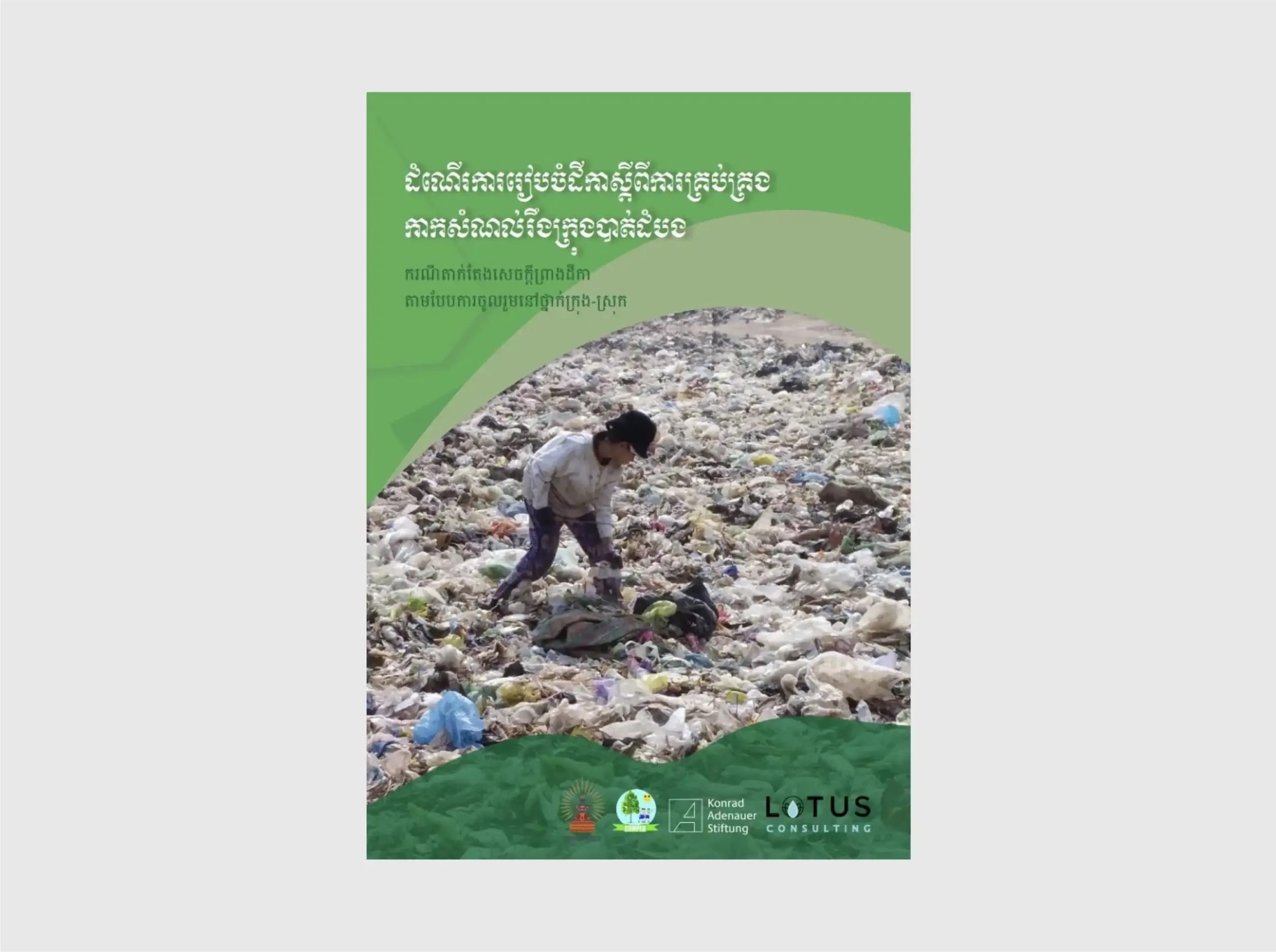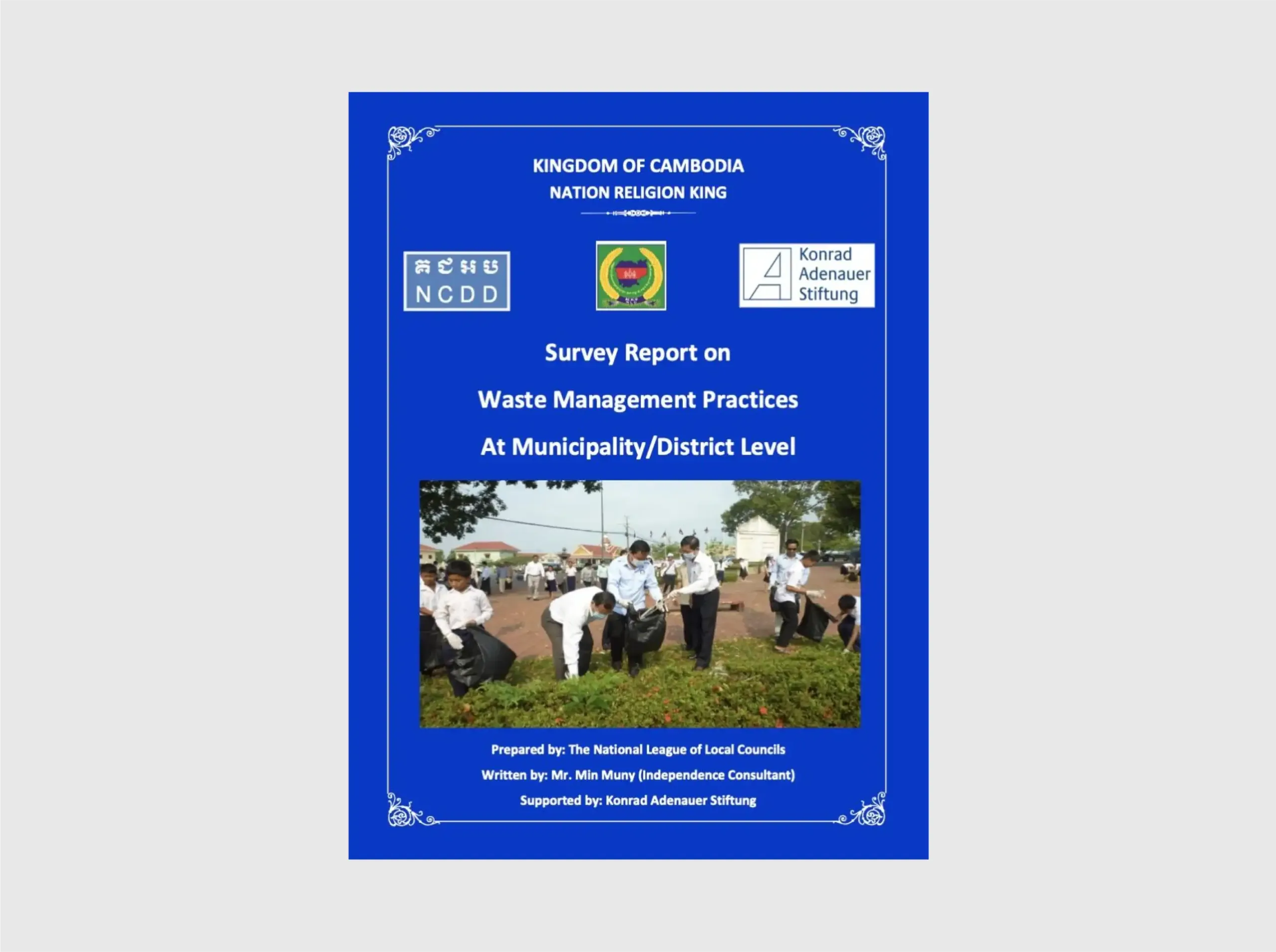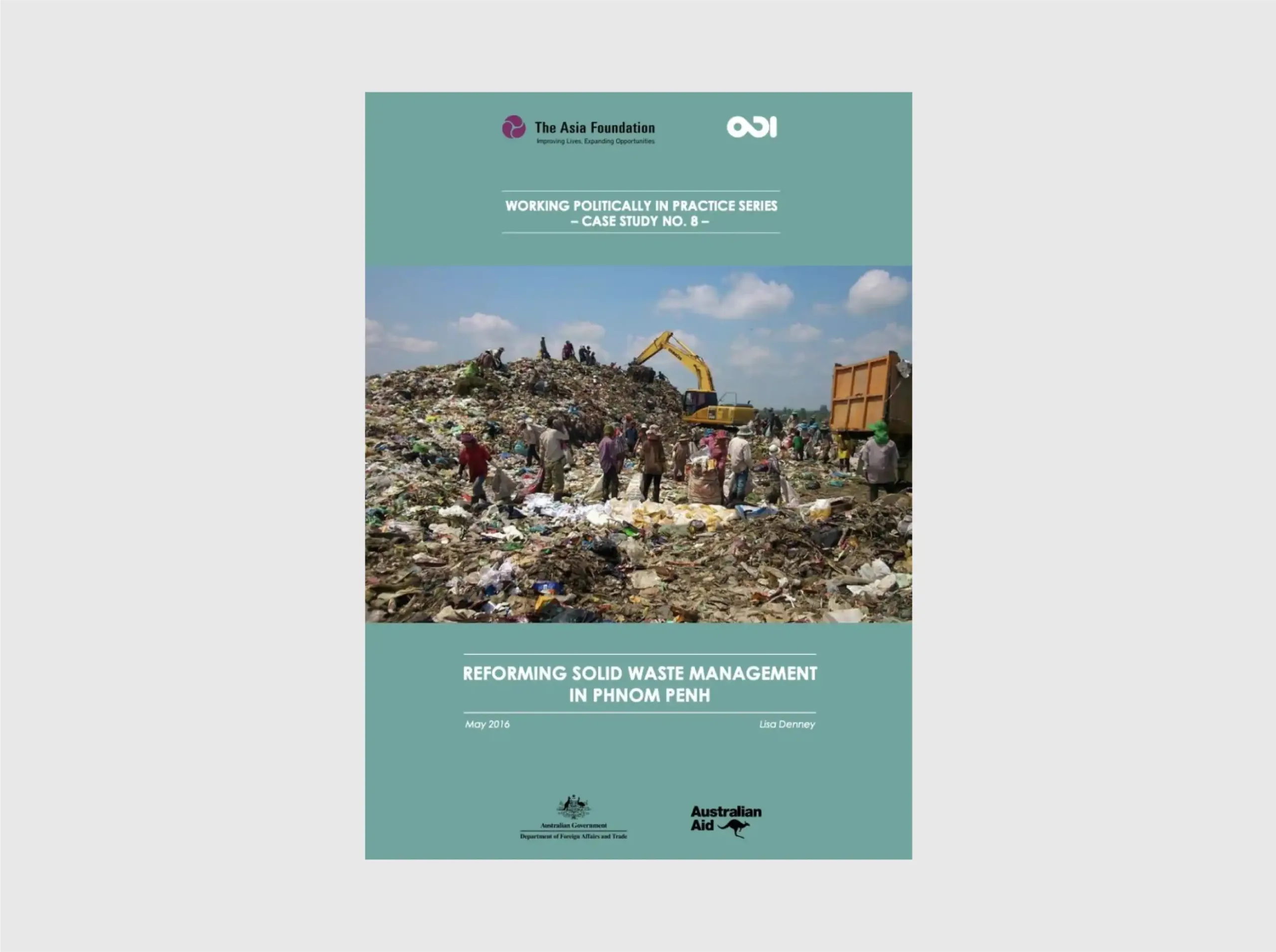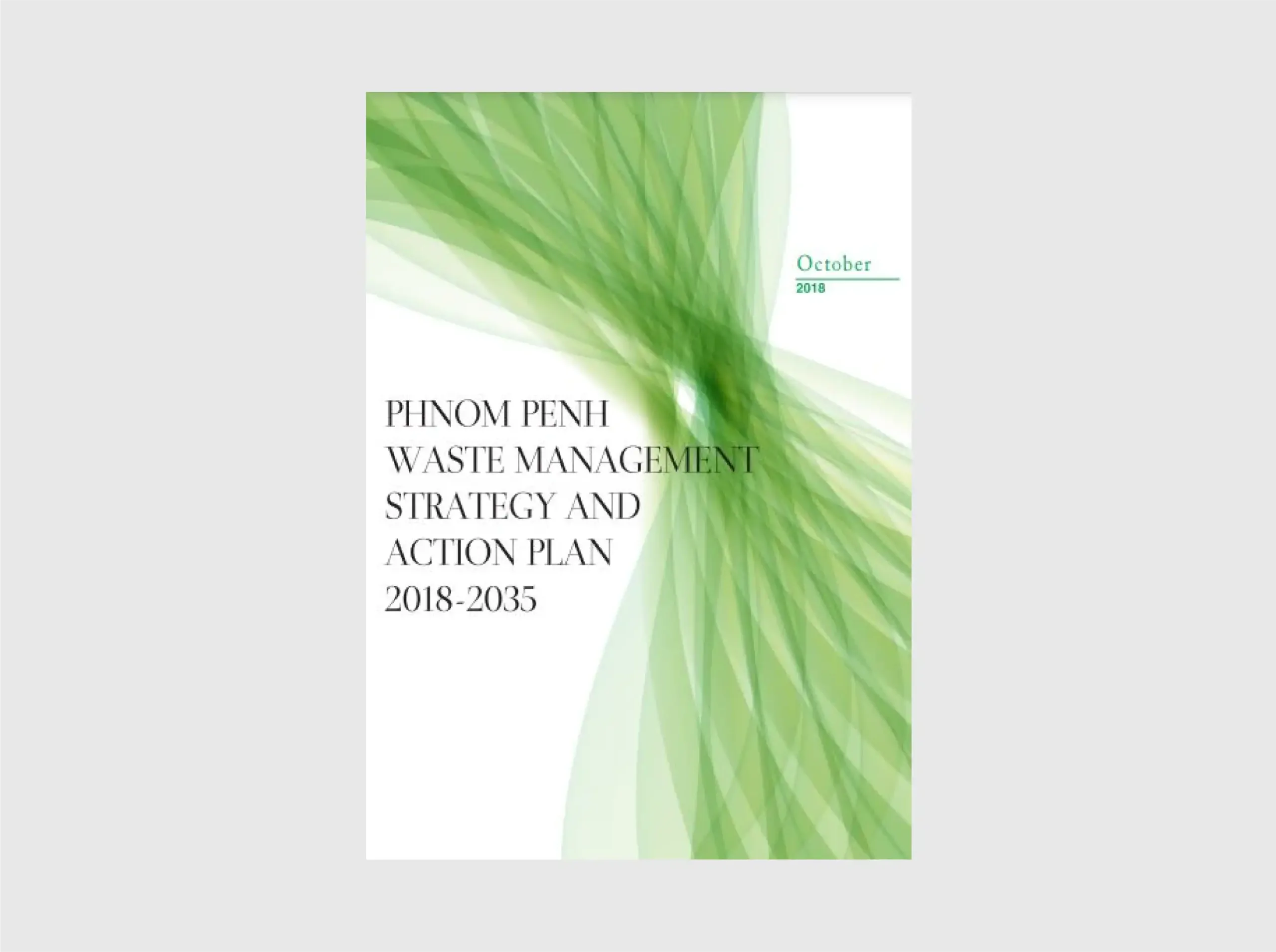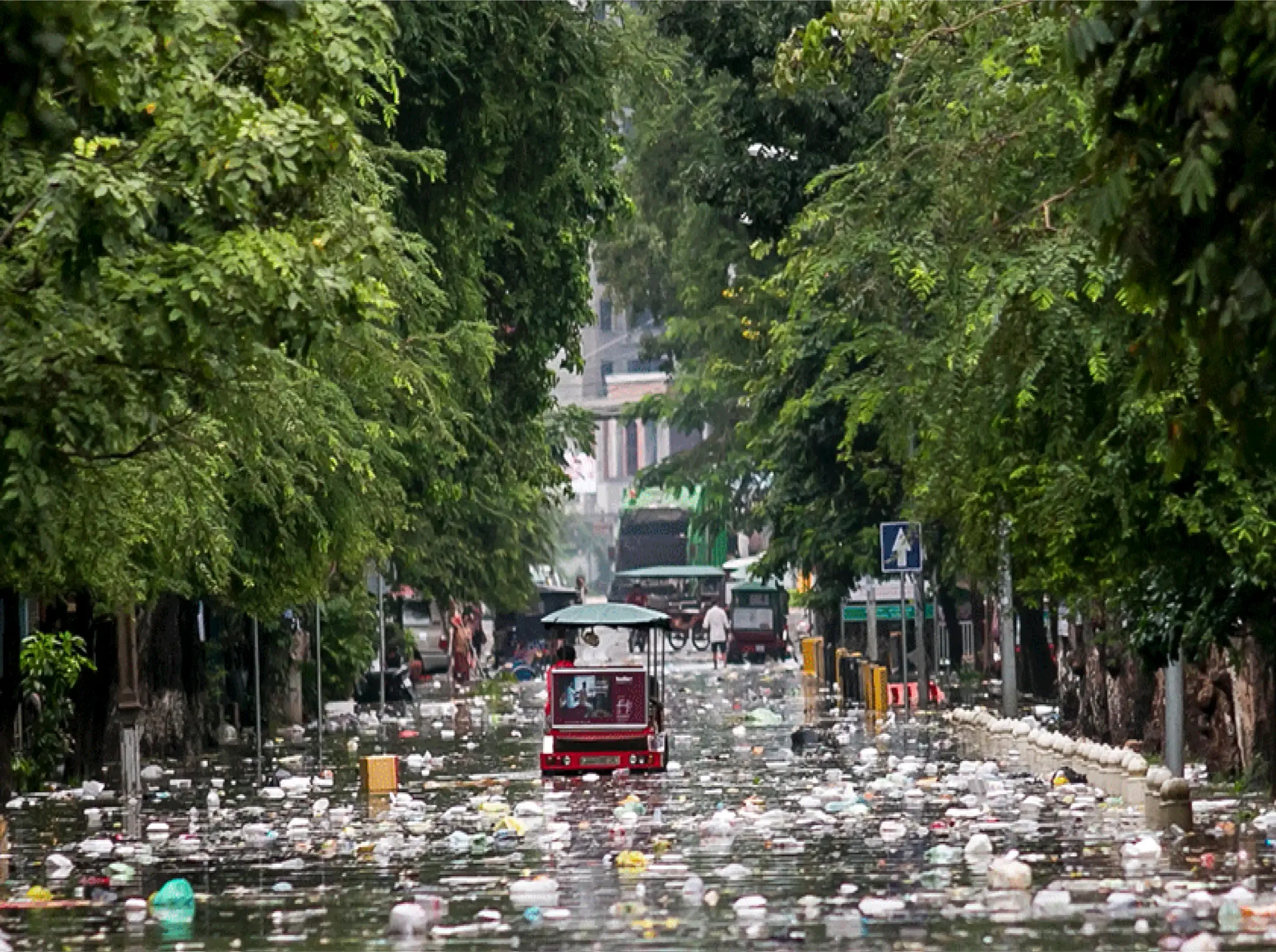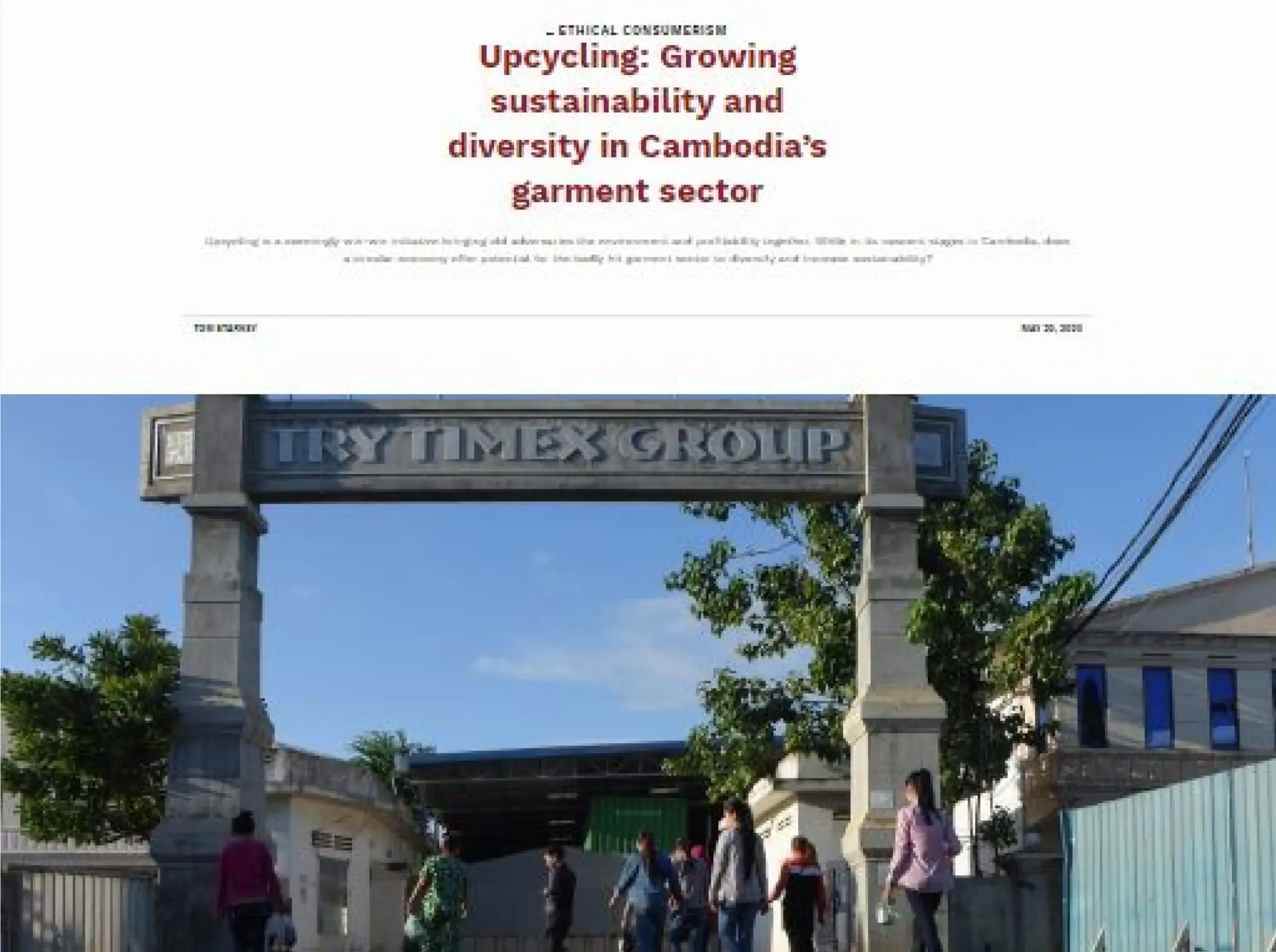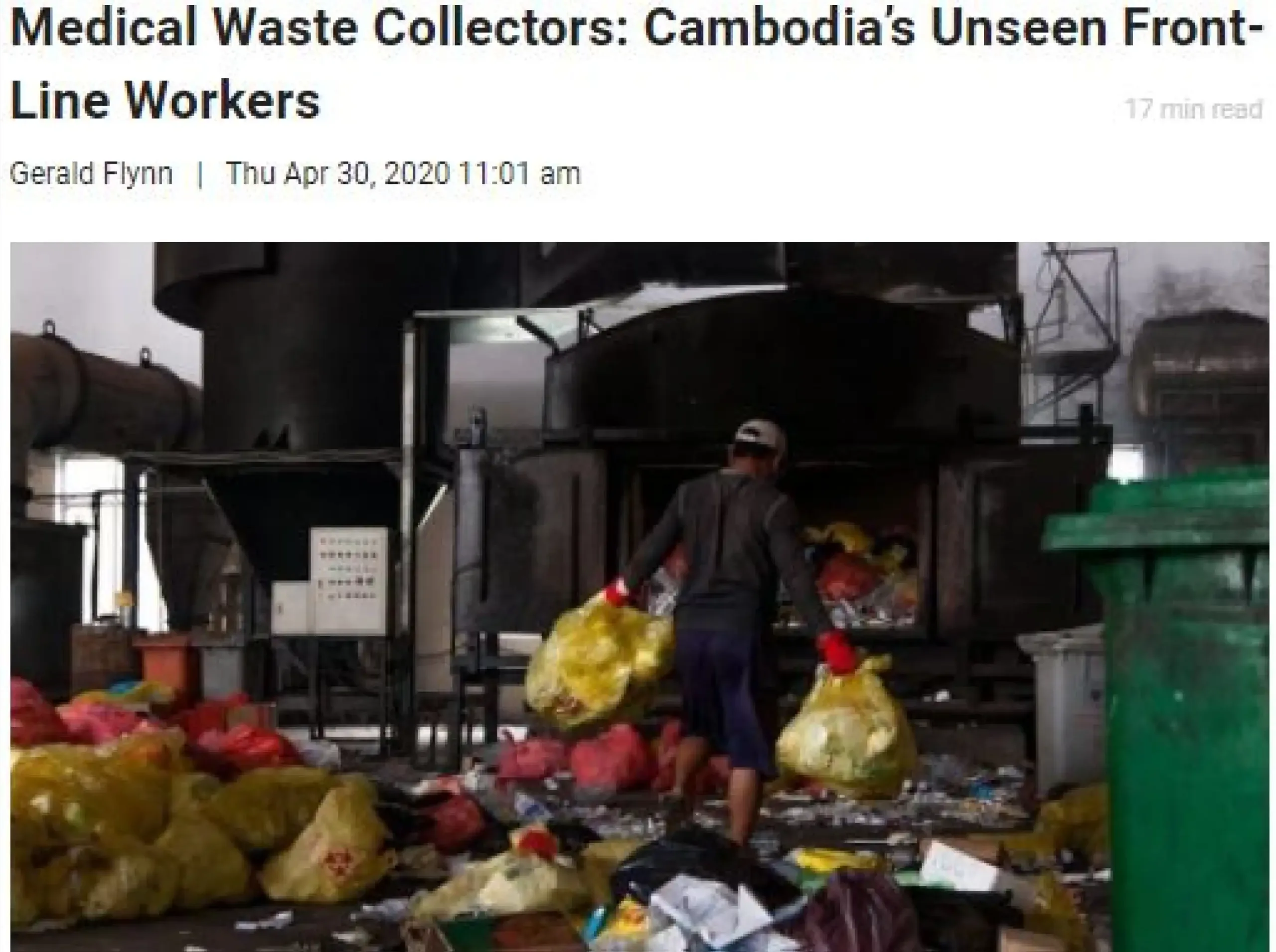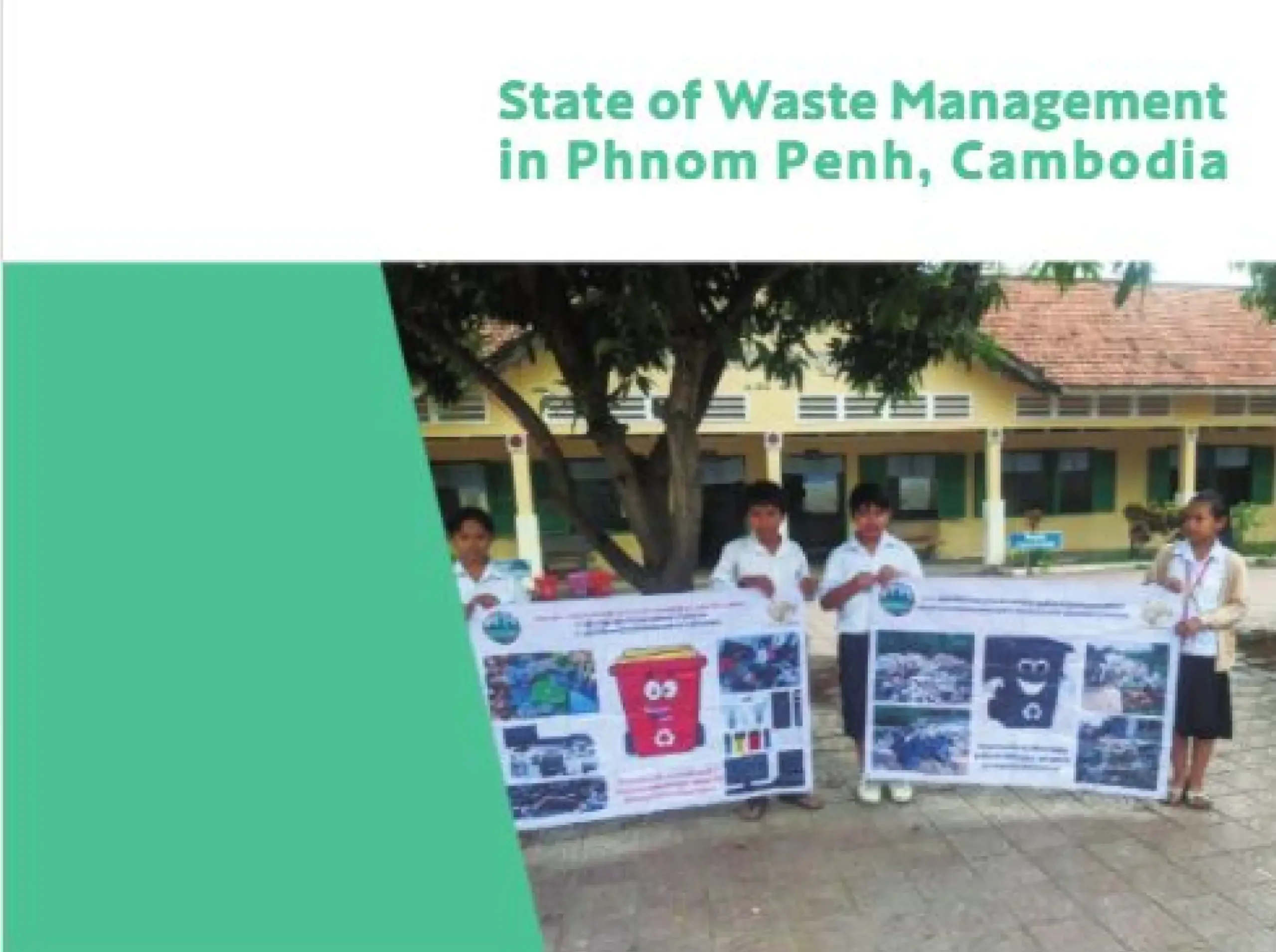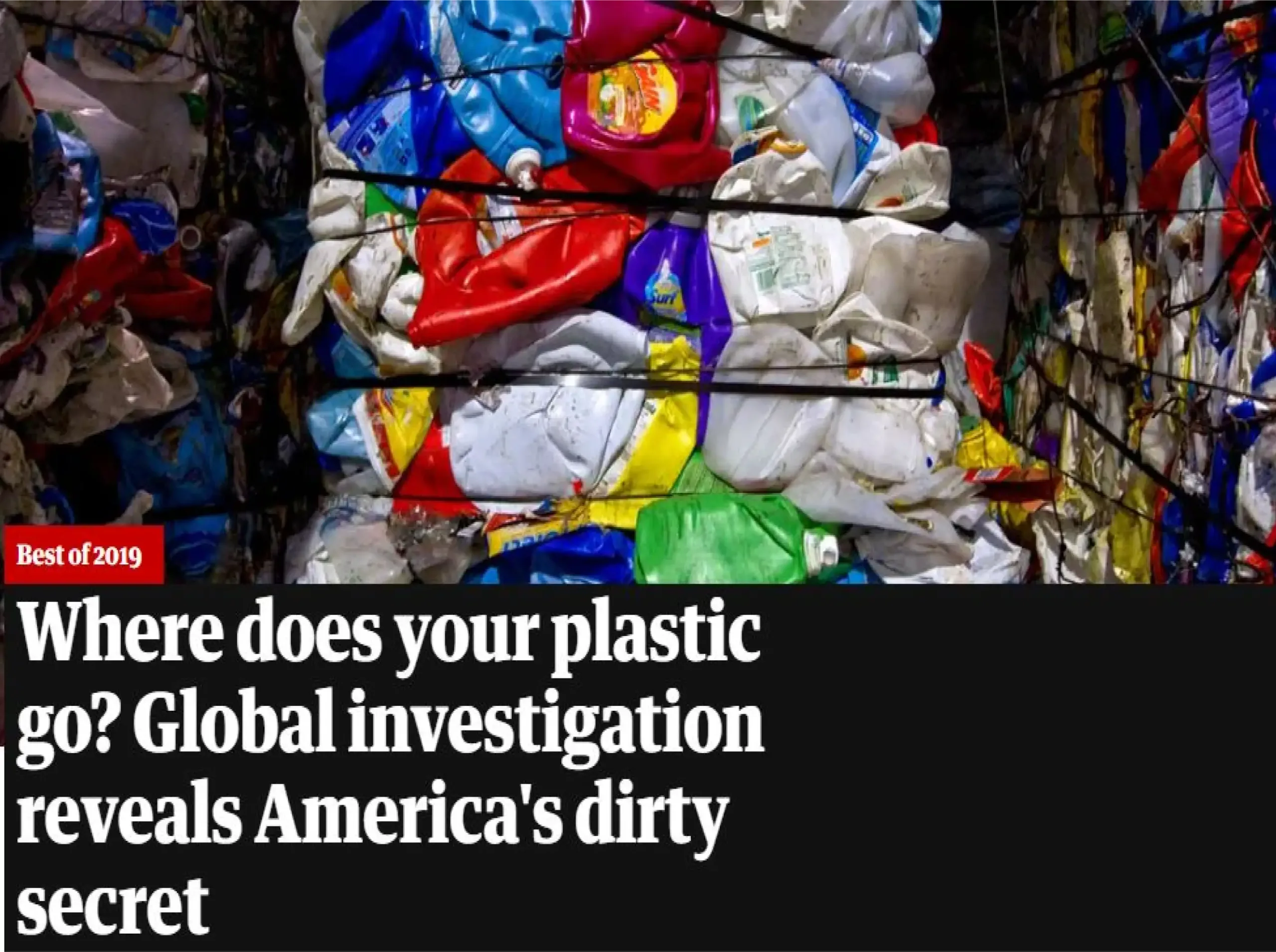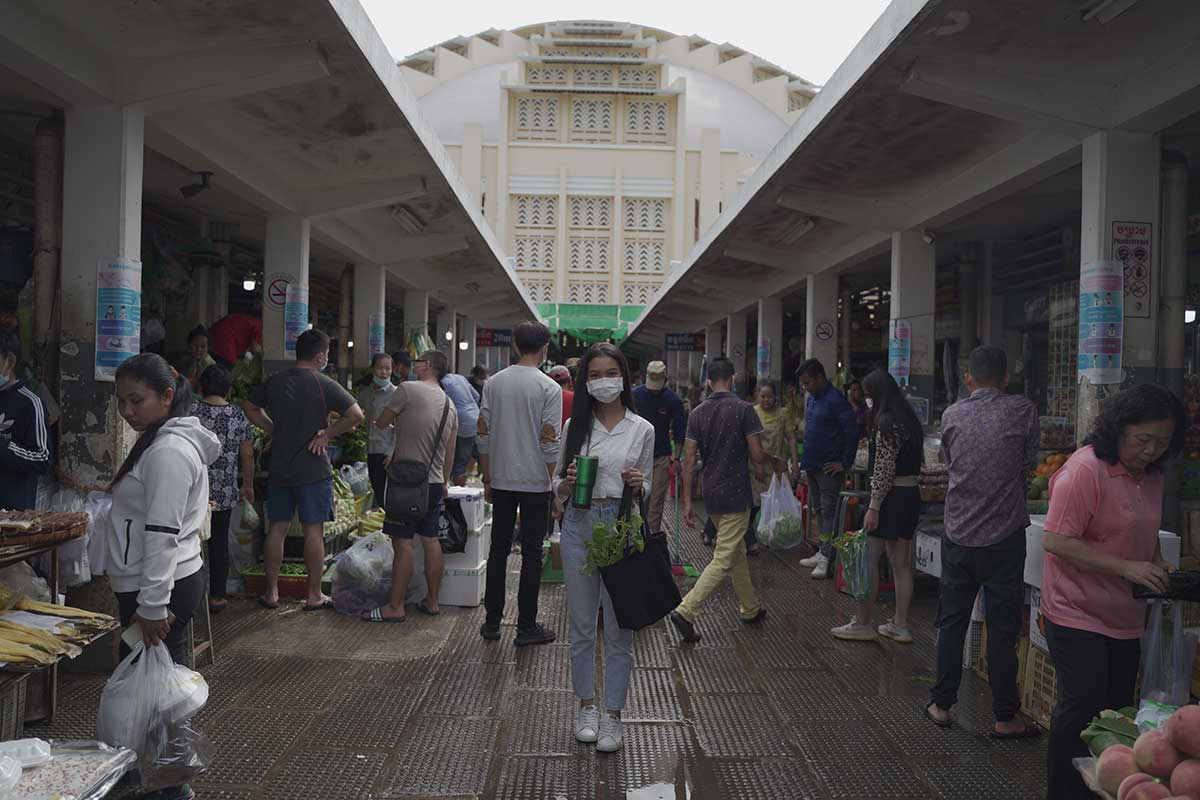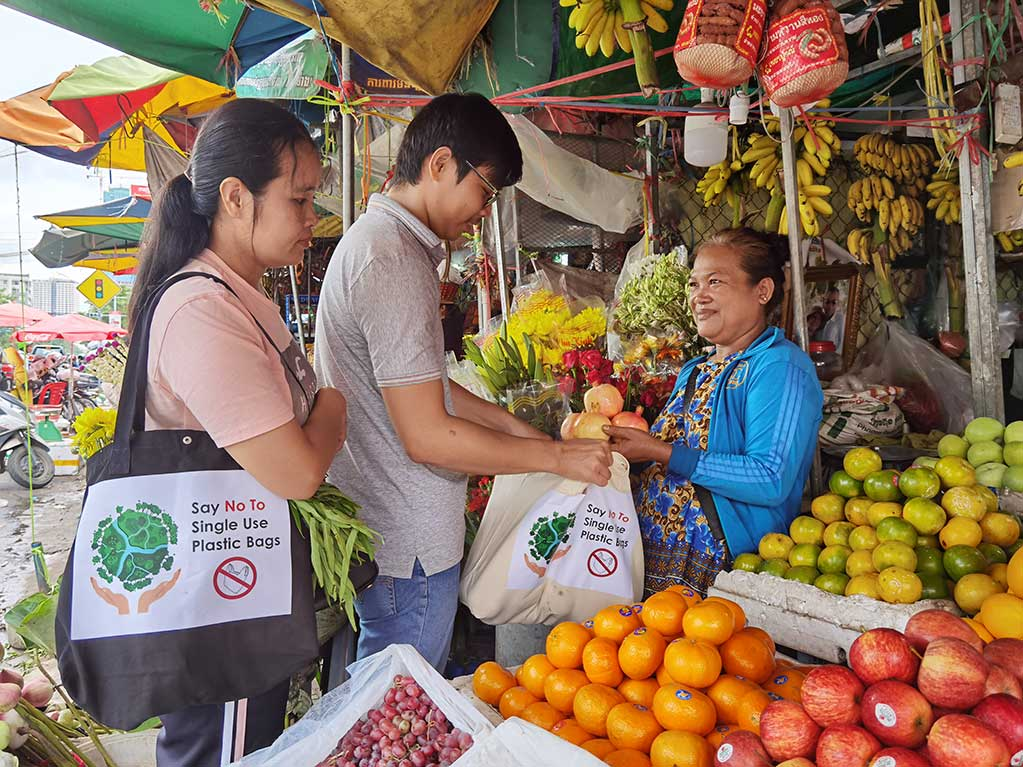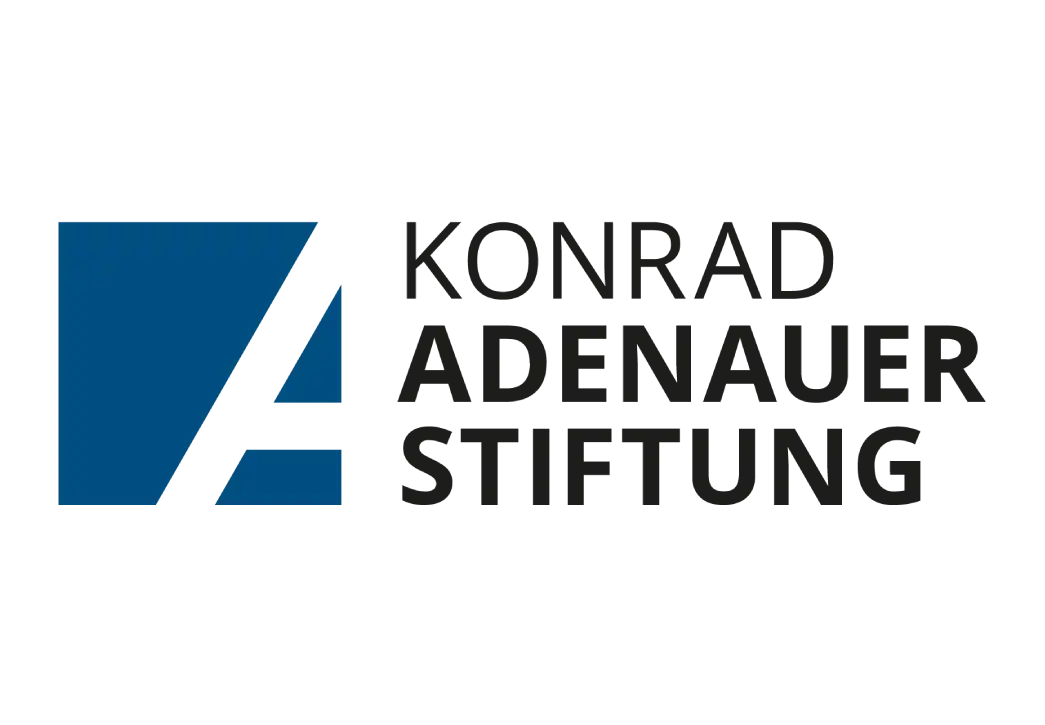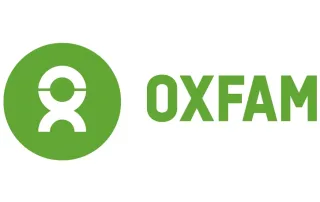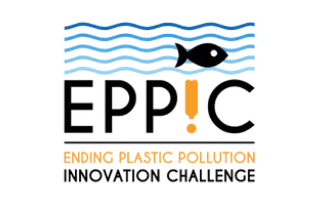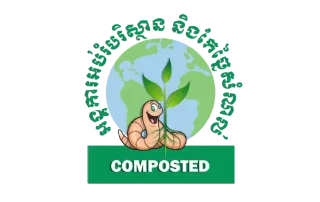Welcome to our resources! In this part, we gather all relevant documents and information from all types of sources related to waste
management in Cambodia. These resources will guide you to a greater insight into what waste management is and how it is important for
sustainable development. You will also be introduced to existing regulations and future strategies to make waste management in
Cambodia more effective.
Waste Summit 2019 Report:
With one of the fastest growing economies and a growing consumer market, Cambodia is generating significant amounts of waste. Phnom Penh alone already produces 3000 tons of garbage per day and the issue of waste will be more important every day. The growing relevance of this topic can be seen at the Waste Summit 2019 hosted by the Konrad-Adenauer-Stiftung together with the German Business Group and Comped on October 9, 2019. The full day event focused on waste management and offered a platform for both sustainable dialogue and future partnerships between investors, start-ups and other relevant actors. The aim of this event was to bring together different people who all have the same objectives: to rethink waste by looking at it from different perspectives.
Cintri Divers, Waste Collectors Stay on Strike
Despite some workers returning to work, CINTRI still cannot keep up with the waste collection demand. The city administration has therefore been recruiting new garbage collectors as the strike is still ongoing. The workers still on strike reduced their demands from 5 points to 2 points, namely the seniority indemnity and the annual allowances.
Partnership Ready Cambodia: Waste Management
Cambodia’s waste management grid is still developing as not all cities are covered yet with waste collection and those who are, are not efficient enough. Rapid economic growth, urbanization and lack of environmental awareness are the key factors for the rising amounts of municipal solid waste. In Phnom Penh, the daily per capita municipal solid waste (MSW) production is at 0,73kg. As recycling is still not widely available in Cambodia, recyclable solid waste has to be exported to neighboring countries such as Vietnam or Thailand or other Asian countries like South Korea or China. 17,000 tonnes of cooper and 10,000 tonnes of plastic were exported out of the Kingdom in 2017. Another issue is the recurring mixing of hazardous, industrial and medical waste with general waste in dumpsites
Deika on Solid Waste Management (SWM) in Battambang. A Case of Participatory Legislative Drafting at Commune Level
In cooperation with the city of Battambang a Deika has been drafted to address solid waste management issues at the local level more efficiently. The report shows that a participatory and inclusive approach in solid waste management increases interest as well as willingness to cooperate with stakeholders and lead to more satisfying results in the long-term.
Survey Report on Waste Management Practices at Municipal/District Level
In order to improve waste management efficiency on the sub-national level, the legal framework implemented in the past few years has been reviewed and local public servants surveyed. The report also compares Cambodian waste management practices with practices applied in other countries and does a case demonstration based on the Preah Sihanouk Municipality.
Working Politically in Practice Series: Reforming Solid Waste Management in Phnom Penh
The case study conducted by Lisa Denney as part of a cooperation between the Asia foundation and the Overseas Development institute (ODI) is founded by the Australian government as well as Australia Aid. It focuses on the way solid waste management reforms can be implemented in Phnom Penh, presents the key players of the field, analyses the root causes for the current waste management issues as well as the main challenges faced.
Waste Management Strategy and Action Plan of Phnom Penh 2018-2030
The city of Phnom Penh has a 2035 master plan for the collection and management of waste. In order to reach the goals of the Paris agreement and the Sustainable development goals (SDGs, become a carbon-neutral society, Cambodia has to become more proactive and develop a sustainable waste management system. The Waste Management Strategy and Action Plan of Phnom Penh 2018-2035 aspires to establish in Phnom Penh a sustainable and equitable development. For this vision to become a reality Phnom Penh Capital Administration (PPCA) has set itself four missions:
- protecting environment and promoting healthy livelihood of the citizens,
- establishing a society where waste is reduced, reused and recycled, thus wastes are reduced to a minimum level,
- making a contribution to low carbon society through waste management sector,
- promoting participation among governments, citizens and businesses for effective waste management.
City of Garbage
In recent years garbage collection efficiency by CINTRI has increased. Nevertheless it still is a big issue as some areas are not covered yet, while the population is rapidly growing and trash can still be seen everywhere in Cambodia’s capital. Furthermore the working conditions of CINTRI’s trash collectors are still harsh as they lack protection, equipment and have an enormous workload.
Solving Cambodia’s Plastic Problem seen as Key to Minimizing Waste
According to Keo Chhannarith, the director of the Dangkor Dumpsite Management Committee, the Dangkor dumpsite will be full by the end of 2020 or the beginning of 2021. This was not supposed to happen before 2034. Amid the fast growing population of Phnom Penh and Cambodia in general it will be key in the next few years to reduce the per capita plastic waste generation. This starts with a change of consumer habits argue a lot of shop owners as, due to social norms and competition, they have to offer the clients plastic bags if they want some. For that to succeed it will be important to raise awareness in local markets.
Dumpsite Pollution and Waste Pickers Struggle in Siem Reap
In Cambodian society waste pickers are still socially marginalized and not recognized enough for their contribution. Waste management problems intersect with poverty and human rights. While city centers and popular landmarks are kept tidy, especially because of its benefits for the tourism sector, there is still no systemic and efficient waste management system in Cambodia.
Confronting Cambodia’s Waste Management Challenge
In Phnom Penh alone, 3,000 tonnes of garbage are generated, of which 600 tonnes of plastic. Cintri’s failure to keep up with the rising trash collection demand has led to a troubled relationship with Phnom Penh city hall. In 2017, Meas Pheakdey, spokesperson for the city hall, declared it was “within the rights of citizens not to pay for services they do not deem acceptable, and it is not the government’s concern if the company is not paid.”. Cintri in the meantime has been demanding more funds and more indulgence. Security on the job is a big issue for Cintri’s employees. 14 of Cintri’s employees have been killed between 2016 and 2019, and 380 incidents of injury happened since 2016.
Stung Meanchey Landfill and Waste Pickers Struggle in Phnom Penh
To avoid overload and poorism, the infamous 1970s built Stung Meanchey landfill was closed in 2009. Its replacement, the Dangkor landfill, is already filling up. Even when officially being denied access to the Dangkor landfill, many informal trash pickers moved from Stung Meanchey to Dangkor, as it was their only viable option for survival. Their living conditions deteriorated as their income decreased due to stricter working conditions and increasing living expenses. Therefore, the ban on trash picking in dumpsites was not effective and rather counterproductive as it hardened the already difficult living conditions of trash pickers. Instead, they could have been included in the waste management system which would have brought them more stability and integrated them into the formal sector.
Upcycling: Growing Sustainability and Diversity in Cambodia’s Garment Sector
The Cambodian garment sector accounts for approximately 16% of Cambodia’s GDP and 80% of its exports. Due to the Covid-19 crisis and partial EBA withdrawal of the EU it has been under a lot of pressure recently. One way out of the economic crisis could be upcycling. Circular recycling could lead to big growth potential, job creation and more skilled labor opportunities.
Encouraging Waste Management, Recycling Through Bin of the Future
Kieng Yang, a 16 year old grade student, and 30 year old IT-specialist Sok Pisey have come up with an innovative project to facilitate waste disposal. Following a funded five month for talented individuals training program, financed by ArrowDot and USAID, the pair came up with a prototype for a smart bin capable of distinguishing between plastic and metal bottles. When presenting their model at the product innovation program (PIP) and a STEAM exposition they got very good feedback, thus reinforcing their motivation to pursue their ideas at a bigger level by creating an industrial-scale waste management system for large factories.
Medical Waste Collectors: Cambodia’s Unseen Frontline Workers
According to the Asian Development Bank (ADB) the disposal of medical waste is a key part of pandemic planning and recovery. With the Covid-19 pandemic, the amount of medical waste has risen dramatically. The medical waste of more than 2,000 facilities in the capital is brought to the Dangkor landfill where the Medical Waste Management Unit (MWMU), which is part of the Cambodian Red Cross, disposes of it. Even though extremely exposed to high sanitary risks, as they have to touch medical waste with their hands, its employees are barely equipped.
State of Waste Management in Phnom Penh, Cambodia
In Cambodia, every substance that is inflammable, such as oxidating, radioactive, toxic or chemical material is categorized as hazardous waste. It is still often mixed with general waste. E-waste refers to electronic goods such as phones, refrigerators, televisions, monitors, keyboards, PVC wires etc. Cambodia imports e-waste from different countries and resells reusable components to countries such as Singapore. Sometimes when there is no appropriate e-waste management available, the waste is burnt inappropriately.
Recycling in Cambodia
The municipal waste of Phnom Penh consists mostly of organic waste (51,9%), plastic waste (20,9%) or paper waste (9,9%). The rest accounts for 17,3%. Every year 1 million ton of waste are produced in Phnom Penh. By 2030 the amount of waste is expected to double in Phnom Penh. In Cambodia the resell value of waste is important to determine the probability of it being recycled. Food waste from street vendors and restaurants is sold to farmers and recycled as food for pigs. E-waste components and building material waste are also being reused. As a walk through the city shows, incentives for plastic are still not high enough.

Lack of Control at Landfill Fire
Due to a methane gas underground build-up, a large fire broke out in the capital’s waste dumpsite Dangkor. City Hall and Cintri both do not want to be taken accountable for it and accuse each other. Air pollution is one of the main direct or indirect causes of death worldwide, especially in lower-income countries.
Where Does Your Plastic Go? Global Investigation Reveals America’s Dirty Secret
The United States were hugely dependent on China to get rid of their waste. As China closed its borders and some other developing countries did the same, the American trash followed the path of least resistance, being constantly redirected to countries that allow or cannot avoid American trash from being imported. America produces 34.5 million tons of plastic waste each year. Each month approximately 260 tons of US plastic scrap makes it to Sihanoukville. Experts estimate that 70% of important trash cannot be recycled.
KASPOP Photo Contest 2020
KASPOP Photo Contest, initiated by KAS Cambodia, aims to create a non-plastic photo competition. The primary objective of this project is to raise awareness for environmental protection and to inspire young Cambodians to start considering small habitual changes that can contribute to the sustainable and non-plastic world
